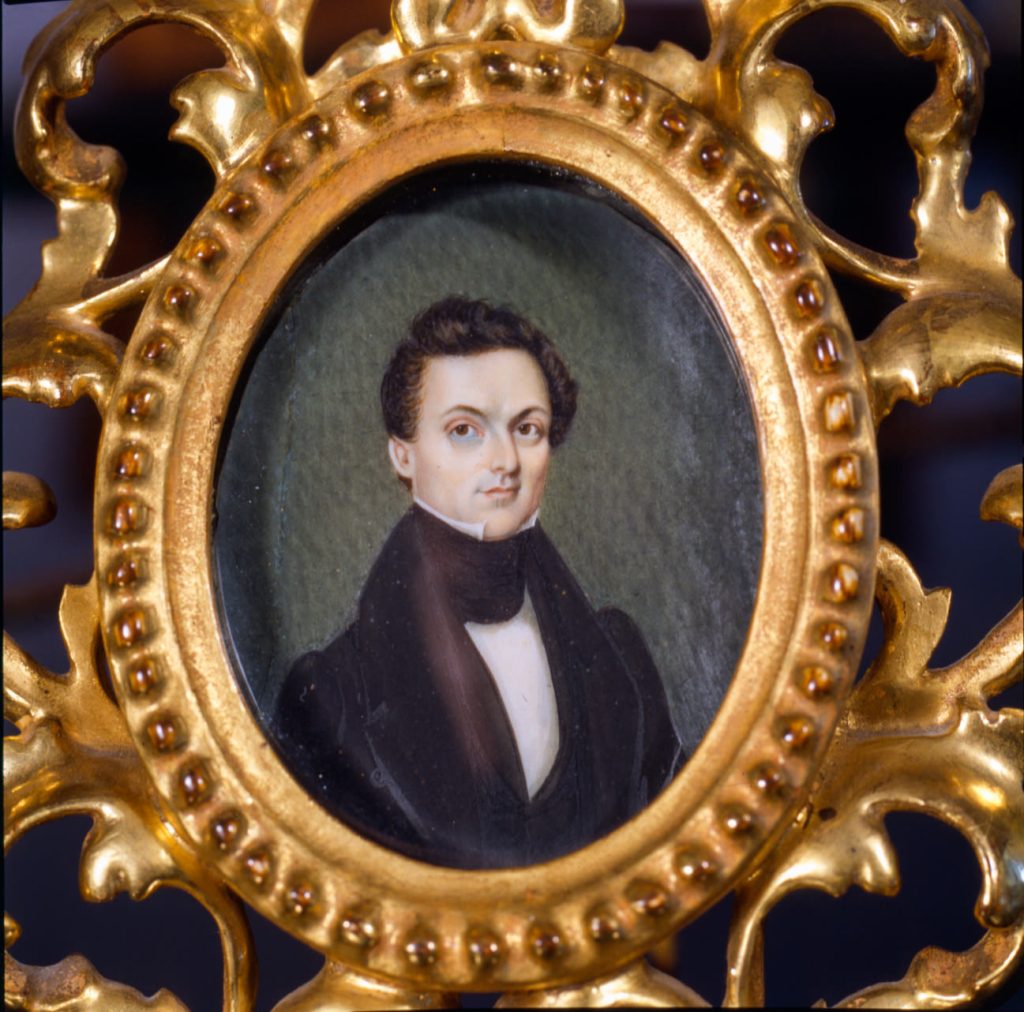The life of David Seixas, according to IsaacLeeser, “was as varied as the figures of a kaleidoscope,shadow and sunshine alternating with him ceaselessly, and could hisbiography be written by a faithful pen, it would exhibit a pictureremarkable for variety and strange vicissitudes.
Seixaswas the oldest of twelve born to Shearith Israel hazzan andleader of American Jewish religious life GershomMendes Seixas and his second wife, Hannah Judah Manuel. Hegrew He grew up in New York, and rather than start a family of hisown, he threw himself into a string of projects and the restless lifeof a manufacturer, merchant, and innovator.
In1804 he went down to New Orleans to manage a store with hisbrother-in-law Israel Baer Kursheedt.Not satisfied with the results, Seixas returned to the city of hisbirth. In 1811 he went to work as an agent for early Americanindustrialist Harmon Hendricks inPhiladelphia. With the outbreak of war with England, Seixas began aventure selling English style crockery when imports from England wereimpossible to come by.
Amonghis other business ventures were manufacturing ink, laminatedvisiting cards, and sealing wax. He opened a brewery and adaguerreotype parlor.
In1816 Seixas inaugurated the project for which he would be bestremembered, and it was not a business venture. It was thePennsylvania Institution for the Dumb and the Deaf, today called thePennsylvania School for the Deaf. Operating out of his home, it wasonly the third institution of its kind opened in the United States.By the end of the year the school had moved into its own building.
In1821 he took six of his students and traveled to Harrisburg wherethey demonstrated lip reading and sign language before thePennsylvania House of Representatives and Governor Joseph Heister. Anact was passed incorporating the institution and endowing it withfunds to support fifty children a year. Among the students whostudied there was Albert Newsam, who became the greatest lithographerof his day in America.
Thesame year as the Seixas’ victory in Harrisburg also saw anunfortunate affair that would tarnish his reputation for theremainder of his life. Two students accused Seixas of molesting them,and while there is cogent evidence to suggest the charges wereinvented, he was nevertheless dismissed. RebeccaGratz called his dismissal unpardonable.” And thoughnumerous other Jewish and non-Jewish defenders spoke out in supportof the horrified and heartbroken Seixas, he would never return to theschool he had founded. Although he established another institution,the Asylum for the Deaf and Dumb, it closed its doors after only afew years. Seixas shrunk from public view after the incident and didlittle else that has been recorded before his death in South Bend,Indiana—a dark and quiet end to such an active and colorful life.
